from Boise, ID
from Boise, ID
Assembling a Zen pergola is fun and easy, even for novices with little or no building experience. You and a helper (or two) can easily have it assembled in 2-3 hours (longer if your pergola includes roof rafters and/or a privacy wall). You won't need any speciality tools, either... just a drill, tape measure, level, ladder and chop saw (aka table saw or miter saw).
Zen pergola kits include everything you'll need to assemble your own backyard pergola except the following (which you'll need to purchase locally from a building supply or home improvement store):
1. Wood (lumber)
2. Anchoring hardware
ZenPergolas.com warrants all products to be free of any defects in material or workmanship upon arrival of such products. ZenPergolas.com further warrants all products to be effective and adequate when used in accordance with design limits and when installed and maintained properly for a period of five (5) years after receiving such products.
When damage or defects are brought to the attention of ZenPergolas.com, ZenPergolas.com may choose, at their sole discretion, to repair damaged or defected parts OR to send out an entire replacement part at zero cost to the customer. ZenPergolas.com is not responsible for time or costs involved to install replacement parts.
All warranty obligations of ZenPergolas.com shall be limited to five (5) years against manufacturing defects. Any such remedies that are made shall constitute ZenPergolas.com's sole obligation and sole remedy of purchaser under this warranty. In no event will ZenPergolas.com be held responsible for incidental, consequential, or special loss or damage, however caused.
You'll need the following simple tools to assemble your Zen pergola:
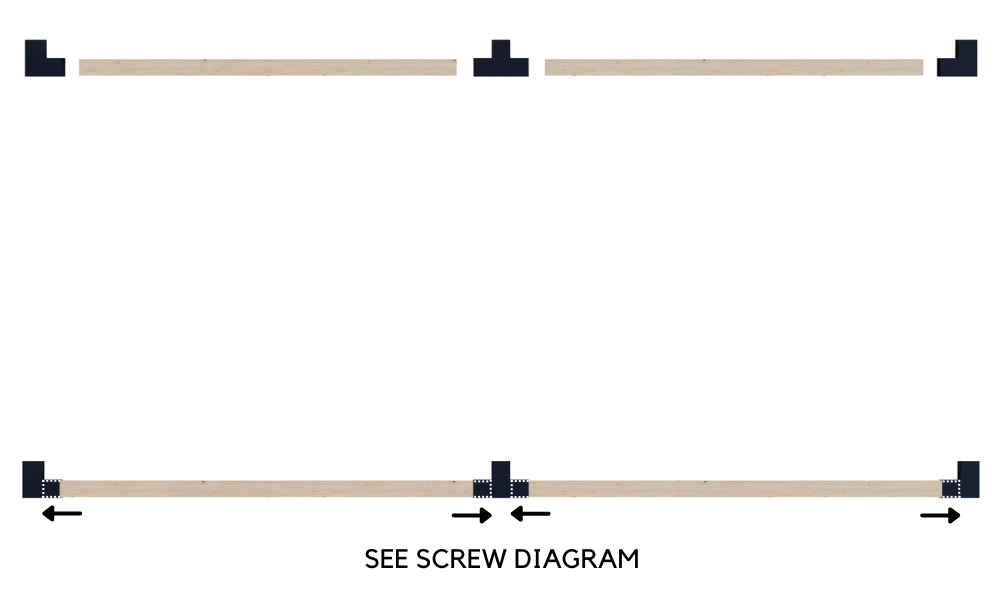
Lay out two 6x6 posts (5.5" x 5.5" actual size) with a 4-arm bracket between them and a 3-arm bracket on each end, as shown in this image. (The vertical arm of all brackets should be facing down.)
Slide the two posts into the middle 4-arm bracket until the posts fill the entire channel but will not interfere with the vertical post (which will go all the way to the top of the bracket). Secure the posts to the 4-arm bracket with the provided screws.
Now slide the 3-arm brackets onto the other ends of the posts. Again, the post should fill the entire channel but should not interfere with the vertical post (which will go all the way to the top of the bracket). Secure the posts with the provided screws.
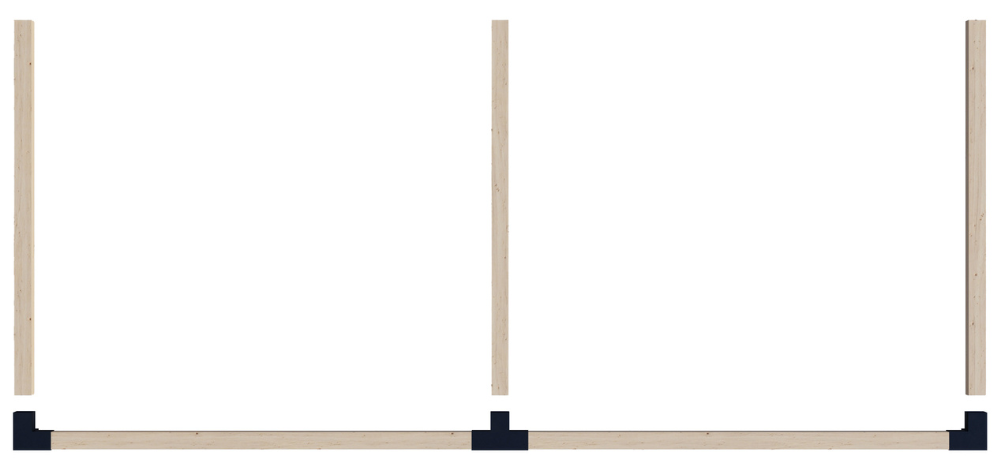
Lay out three more 6x6 posts next to the 2-post structure you completed in step 1B above as shown in this image.
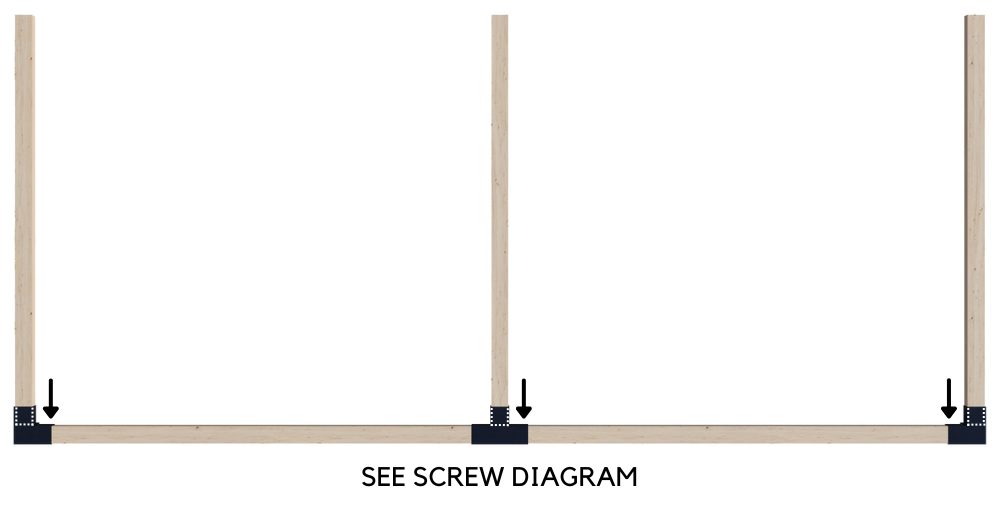
Slide all 3 posts into the open channels of the two 3-arm brackets (on the ends) and the 4-arm bracket (in the middle). The posts should fill the entire channel but should not interfere with the vertical post (which will go all the way to the top of the bracket). Secure the posts to the brackets with the provided screws.

Lay out two more 6x6 posts with a 5-arm bracket between them and a 4-arm bracket on each end, as shown in this image. (The vertical arm of all brackets should be facing down.)

Slide the two posts into the middle 5-arm bracket until the posts fill their entire channels but will not interfere with the vertical post (which will go all the way to the top of the bracket). Secure the posts to the 5-arm bracket with the provided screws.
Now slide the 4-arm brackets onto the other ends of the posts. Again, the posts should fill the entire channel but should not interfere with the vertical post (which will go all the way to the top of the bracket). Secure the posts to the 4-arm brackets using the provided screws.
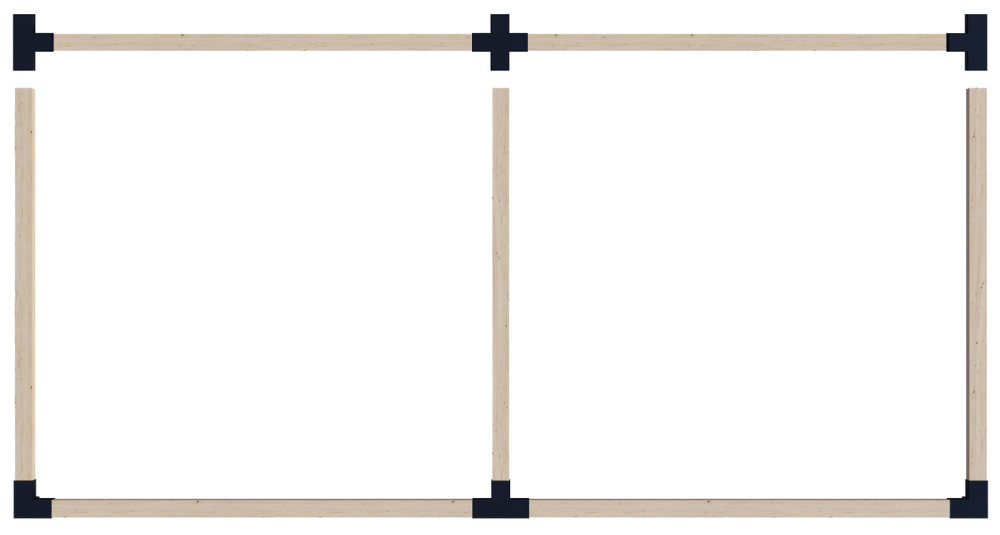
Lay out the completed W-shaped structure (which you completed in step 1D above) next to the completed 2-post structure (which you just completed in step 1F) as shown in this image.
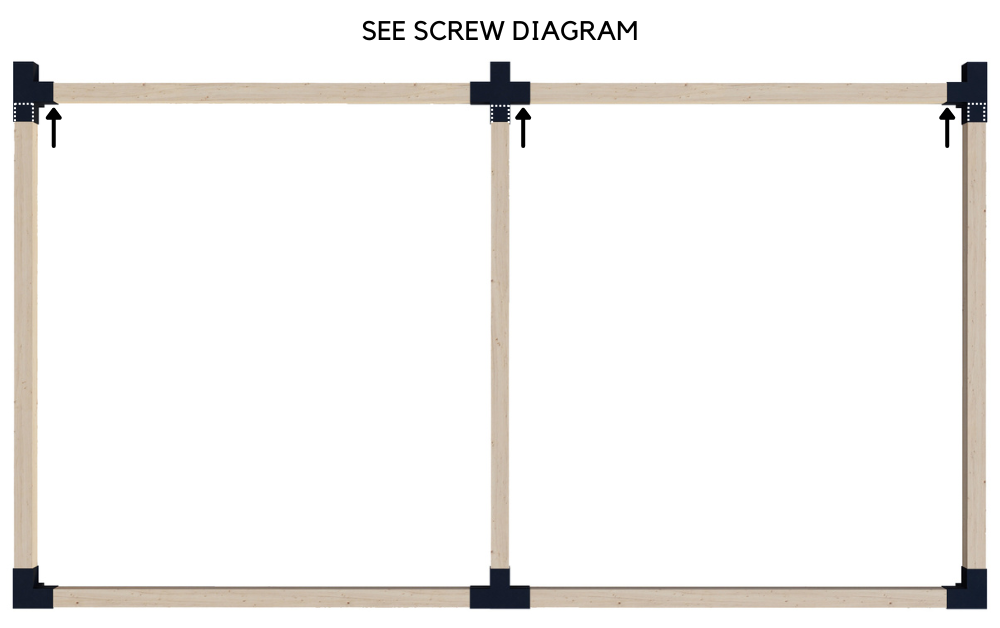
Slide the 2-post structure onto the ends of the 3 posts of the W-shaped structure. Each of the 3 posts should fill their entire channels but should not interfere with the vertical posts (which will go all the way to the top of the brackets). Secure the posts with the screws provided.
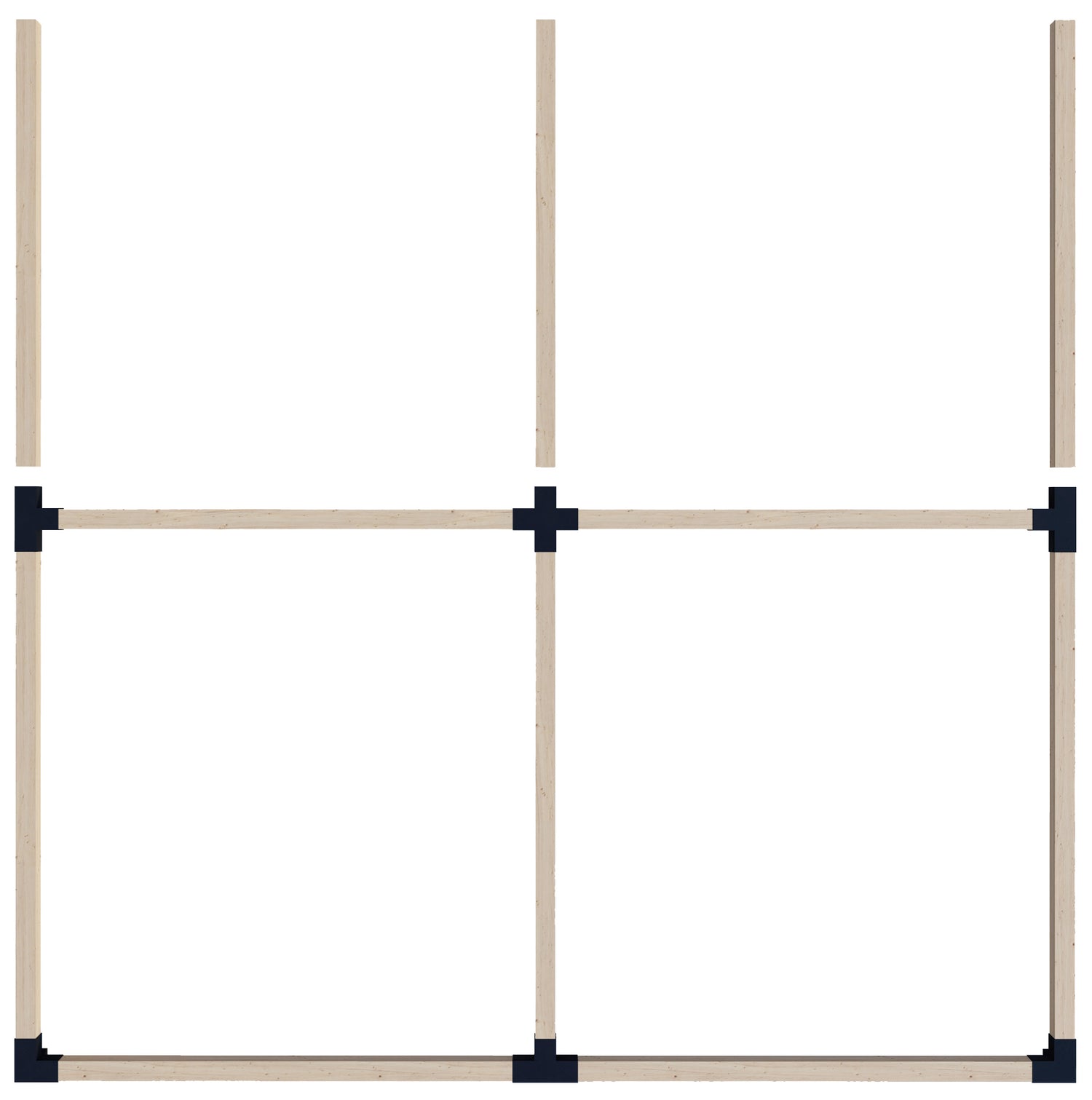
Lay out three more 6x6 posts next to the open channels (arms) of the two 4-arm brackets (on the ends) and the 5-arm bracket (in the middle).
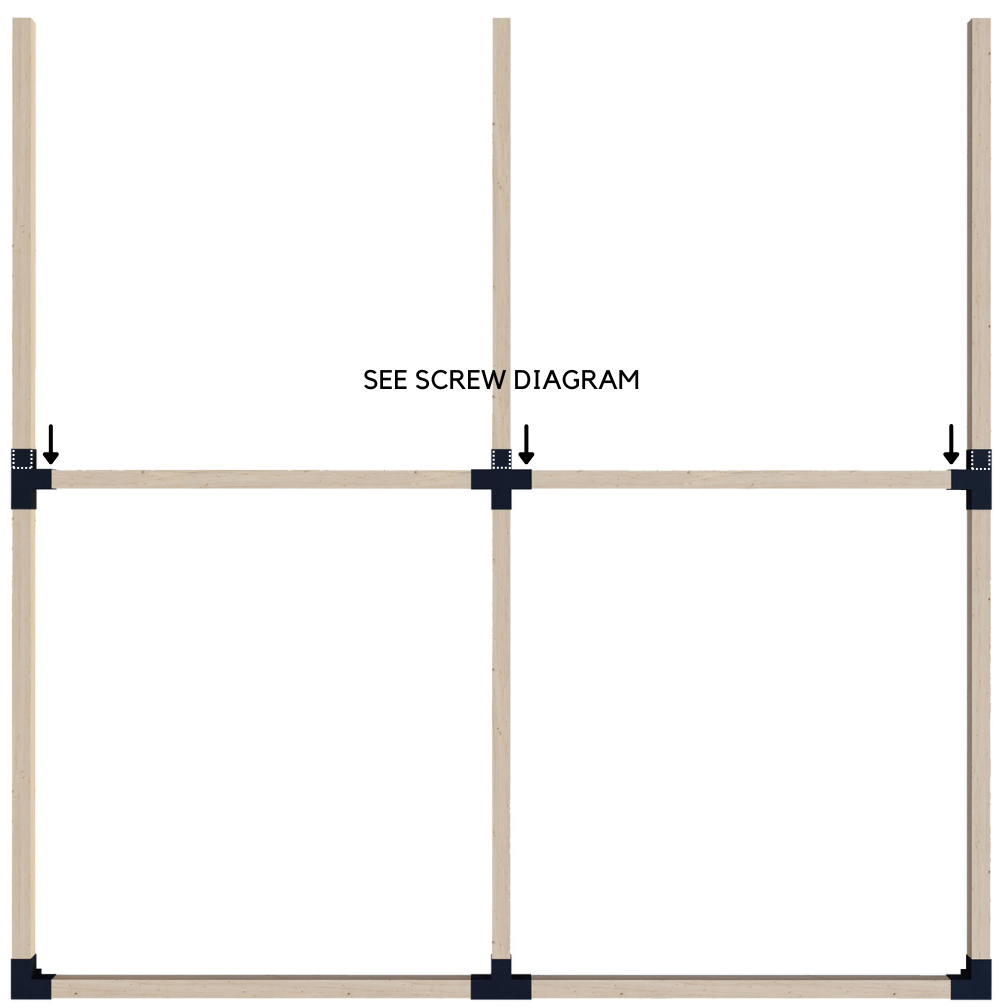
Slide all 3 posts into the open channels of the two 4-arm brackets (on the ends) and the 5-arm bracket (in the middle). The posts should fill the entire channel but should not interfere with the vertical post (which will go all the way to the top of the bracket). Secure the posts to the brackets with the provided screws.
You have now completed the frame of the roof.
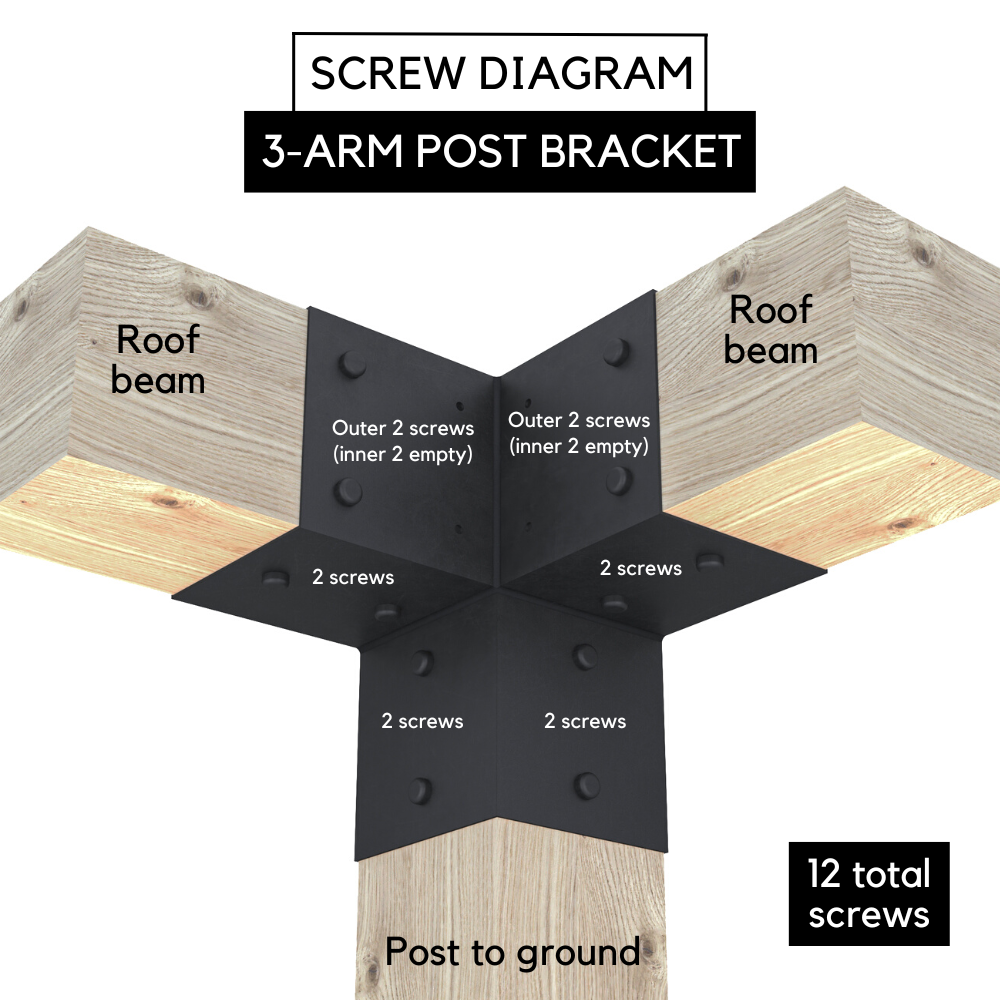
The 3-arm post bracket should be oriented such that the arm (channel) with only 2 screw holes per side is at the bottom (for the vertical post going to the ground).
Each 3-arm post bracket in your kit includes 12 stainless steel screws. See the screw diagram to the right to see which 12 holes the screws should go in. (Additional holes are for attaching accessories.)
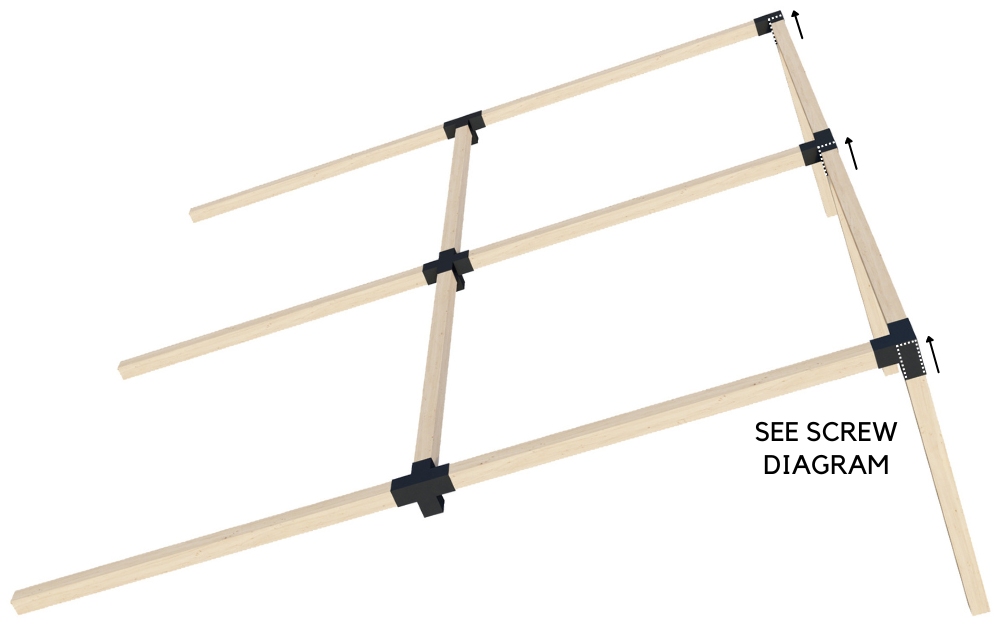
With the assistance of a few helpers, lift the side of the roof assembly that has the two 3-arm brackets and the 4-arm bracket in the middle. Slide a 6x6 post into all three of these brackets until they hit the very top of the brackets. Secure the posts to the brackets using the provided screws (see screw diagram above).
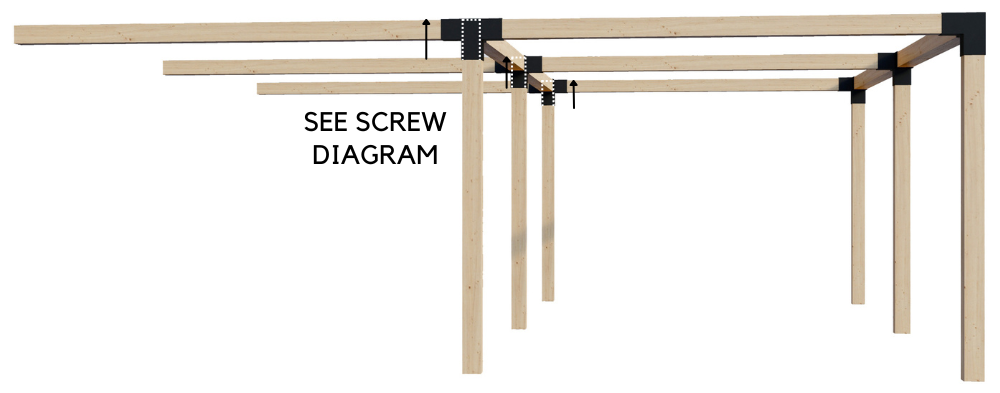
With the assistance of a few helpers, lift the other end of the roof assembly (i.e. the end without any brackets, which will attach to the house). Slide a 6x6 post into all three of the remaining brackets in the middle of the roof structure (two 4-arm brackets on the outside and one 5-arm bracket in the middle). The posts should hit the very top of the brackets. Secure the posts to the brackets using the provided screws (see screw diagram above).
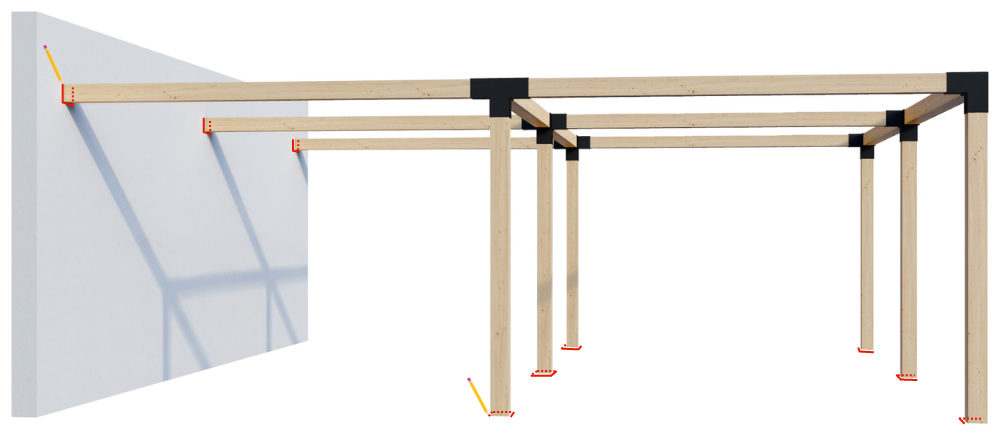
With the assistance of a few helpers (and using ladders as necessary), move the pergola frame into the exact place you want the pergola to stand, with the 3 open posts touching the wall to which you will be attaching them. Use a level to ensure that the roof is level and the posts are perfectly vertical.
Now use a pen or pencil to lightly trace:
i) the inside edges of the vertical posts (on the ground); and
ii) the left, bottom and right edges of the 3 horizontal beams where they touch the wall.
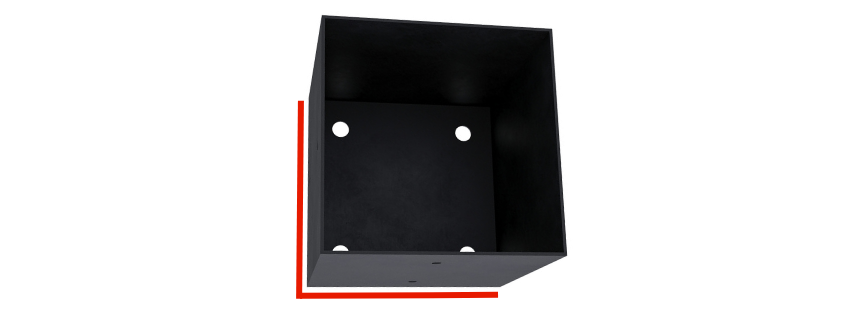
Move the roof assembly a few feet out of the way. Set a 6x6 base bracket in each of the 6 spots you marked on the ground. Attach the base brackets to the ground using appropriate anchoring hardware (not included).
The type of anchoring hardware you'll want to use depends on what type of secure base (foundation) you're attaching the base brackets to (i.e. concrete footing, cement pad, deck footings, etc.). Ask a professional at a building supply or home improvement store what type of anchoring hardware they recommend.
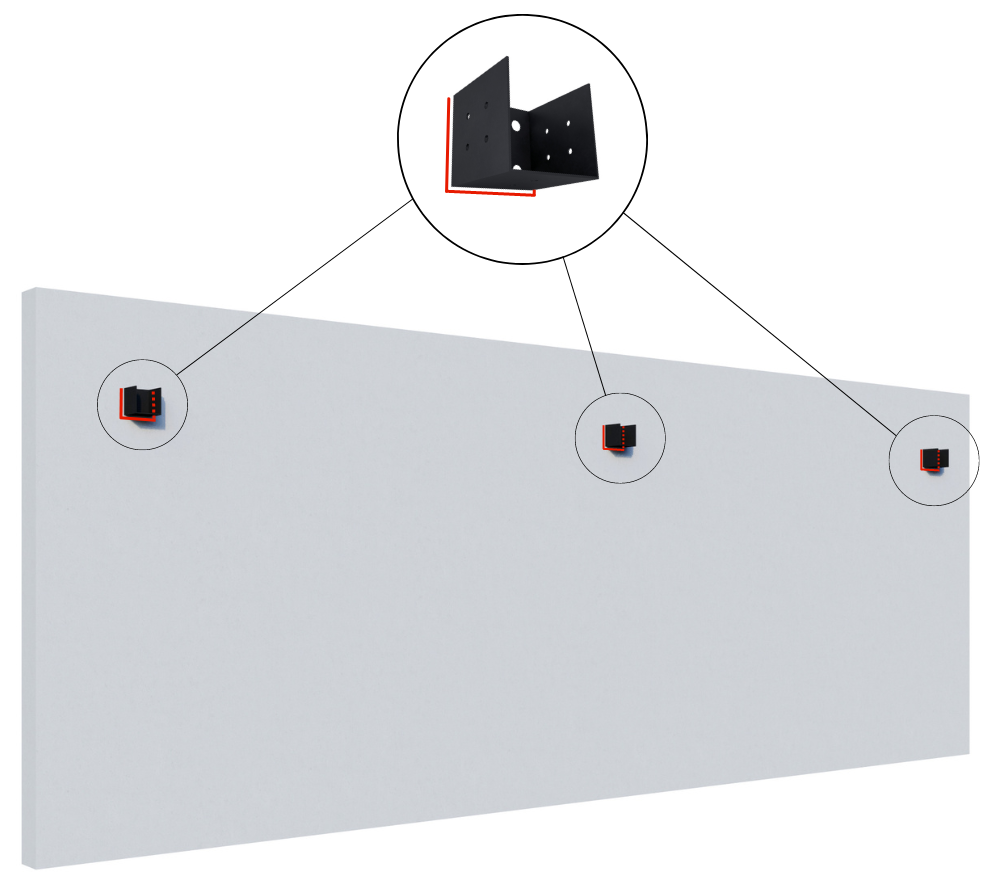
On the wall to which you'll be attaching the pergola beams, line up the three 6x6 wall mount brackets with the marks you made in Step 3A (making sure to account for the thickness of the brackets). Attach the three wall mount brackets to the wall using appropriate anchoring hardware (not included).
The type of anchoring hardware you'll want to use depends on what type of secure base you're attaching the wall mount brackets to. Ask a professional at a building supply or home improvement store what type of anchoring hardware they recommend.
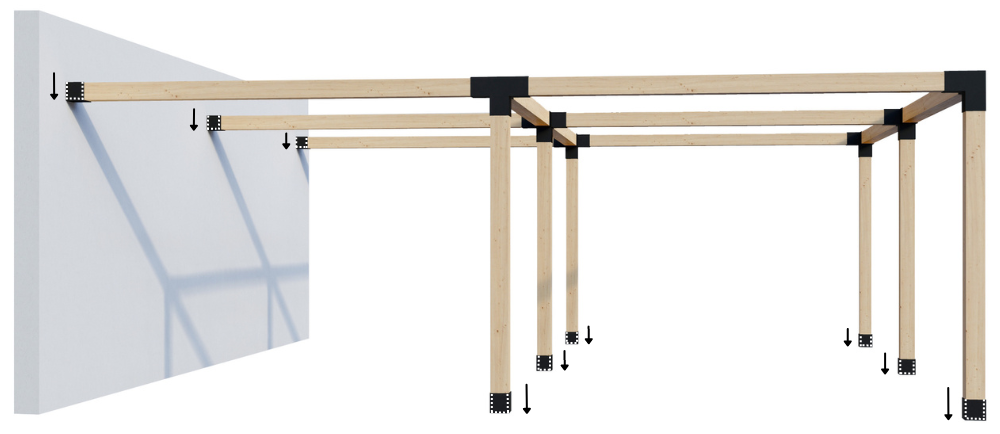
Put a person on each vertical post. Simultaneously slide the 6 vertical posts into the 6 base brackets as you also slide the 3 horizontal roof beams into the wall mount brackets.
Then secure the 6x6" posts to the base brackets and wall mount brackets using the provided screws.
The pergola frame is now complete.
If your pergola kit includes a roof kit, a privacy wall kit, a corner support kit and/or a side railing kit, click the appropriate link(s) below for step-by-step installation instructions: